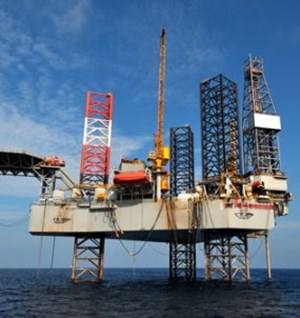Malaysia defies China with offshore oil, gas drilling in disputed waters, U.S. think tank says
(Bloomberg) — Malaysia is expanding oil and gas exploration in the disputed South China Sea despite pressure from Chinese vessels that have maintained a constant presence in waters where both sides have overlapping claims, according to a new report.
Short-range coastal tracking data show that China’s coast guard ships operated in waters claimed by Malaysia “like clockwork,” with at least one of its vessels stationed in Malaysia’s exclusive economic zone or continental shelf area nearly every day of the year, according to the Washington-based Asia Maritime Transparency Initiative.
“Despite the CCG’s efforts, Malaysia has not only continued its existing oil and gas production but also expanded exploratory activity,” according to the report published Tuesday. It adds that Chinese vessels spent most of their time near Luconia Shoals, a group of mostly submerged reefs 80 nautical miles (150 kilometers) northwest of Sarawak state on Borneo that sits between a number of major Malaysian oil and gas projects.
The study comes after the leak of a diplomatic letter weeks ago in which Beijing privately urged Malaysia to halt its offshore oil and gas activities near Luconia Shoals, prompting a rare public acknowledgment of the long-running dispute from Prime Minister Anwar Ibrahim just as his government seeks to foster deeper economic links with China.
“China is a great friend, but of course we have to operate in our waters and secure economic advantage, including drilling for oil in our territory,” he said during a visit to Russia.
Stretching from the Chinese mainland and Taiwan down to Malaysia and Indonesia, the South China Sea is a critical artery for global trade, including about 37% of the world’s maritime crude. China has laid claim to a vast swath of the waters, based on a vague 1940s map that has broadly been rejected by other nations and a UN tribunal.
To assert its expansive claims, China has utilized a maritime militia of fishing fleets and coast guard vessels to swarm resource rich waters, effectively blocking other claimant nations like the Philippines and Vietnam from tapping the deposits beneath the surface.
“While China’s presence at Luconia Shoals is continuous, it doesn’t come close to matching the scale of activity farther north in the Spratly Islands, where Beijing has deployed dozens of coast guard and hundreds of militia ships to contest Philippine activities in disputed waters,” the AMTI report said.
“However, with Malaysia’s expanding drilling and a potential reduction in China-Philippine tensions, Beijing could ratchet up the pressure on Malaysian hydrocarbon production,” it said.



